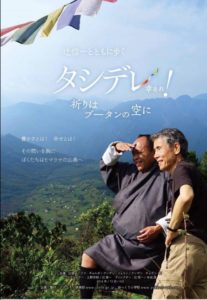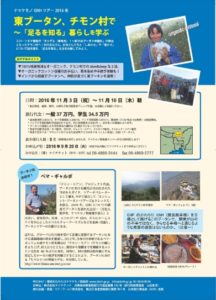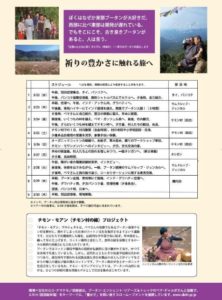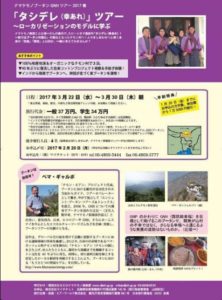Ancient Bhutan
"Discover Peace and Happiness"
Since 2000
Travel with us for an Unforgettable Journey
Embark on an unforgettable journey to Bhutan with our agency, where breathtaking landscapes, rich cultural heritage, and spiritual tranquility await. Experience the magic of the Last Shangri-La with expert guides, exclusive itineraries, and unparalleled hospitality. Discover Bhutan’s hidden gems and create memories that last a lifetime. Join us now!
Experiences in Bhutan
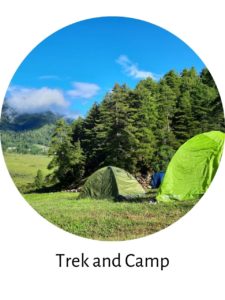
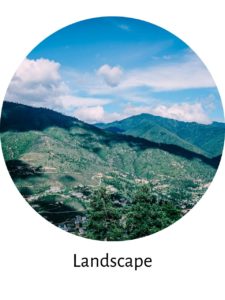
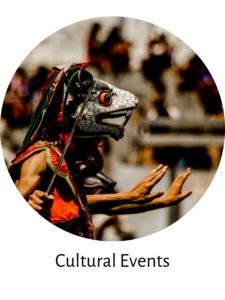
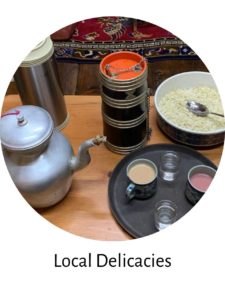
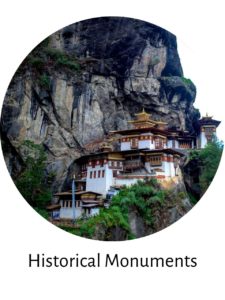
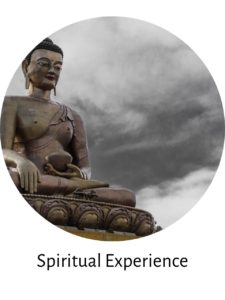
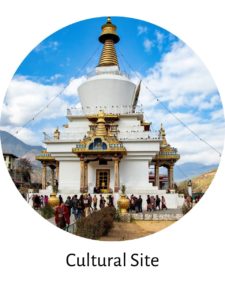
Popular destinations in Bhutan
Bhutan, with its blend of natural beauty, spiritual richness, and cultural heritage, offers a variety of captivating destinations. Here are the top ten must-visit places in this enchanting kingdom:
1. Paro Taktsang (Tiger’s Nest Monastery)
Perched on a cliffside, this iconic monastery is a spiritual haven and offers breath-taking views. The hike to the monastery is challenging yet rewarding, making it a highlight for many travelers.
2. Punakha Dzong
Known as the “Palace of Great Happiness,” this majestic fortress sits at the confluence of the Pho Chhu and Mo Chhu rivers. It is one of Bhutan’s most beautiful and historically significant dzongs.
3. Thimphu
The capital city of Bhutan, Thimphu is a unique blend of modernity and tradition. Key attractions include the Buddha Dordenma statue, Tashichho Dzong, and the National Memorial Chorten.
4. Phobjikha Valley
A glacial valley known for its stunning landscapes and the annual migration of black-necked cranes. The Gangtey Monastery, situated on a hilltop, offers spectacular views of the valley.
5. Bumthang Valley
Often referred to as the spiritual heartland of Bhutan, Bumthang is home to some of the country’s oldest temples and monasteries, including Jambay Lhakhang and Kurjey Lhakhang.
6. Dochula Pass
Offering panoramic views of the Himalayan range, Dochula Pass is adorned with 108 chortens (stupas). The pass is especially breathtaking in the early morning with clear skies.
7. Haa Valley
A serene and less-visited valley that offers a peaceful retreat with its traditional villages, lush forests, and historical sites like the Lhakhang Karpo and Lhakhang Nagpo temples.
8. Jigme Dorji National Park
Bhutan’s largest national park, it is a haven for wildlife and offers opportunities for trekking and experiencing the country’s diverse flora and fauna, including the elusive snow leopard.
9. Trongsa Dzong
The largest dzong in Bhutan, Trongsa Dzong is strategically located on a mountain spur overlooking the Mangde Chhu river. It has great historical significance as the traditional seat of Bhutan’s kings.
10. Chele La Pass
The highest motorable pass in Bhutan, Chele La offers stunning views of the Himalayas, including Mount Jomolhari. It’s a great spot for hiking and enjoying the natural beauty.
These destinations showcase the diverse beauty and rich cultural tapestry of Bhutan, making the country an ideal destination for travelers seeking both adventure and tranquility.
About Us

Mr. Pema Gyalpo
Founder of Ancient Bhutan Tours
Founder of Bhutan Cotton
Ancient Bhutan Tours is a family owned tour operator founded in the year 2000. The tour operator delivers top-notch travel experiences in Bhutan. Specializing in personalized service and authentic cultural immersion.
“we ensure an unforgettable journey. Discover the magic of the Last Shangri-la with us. Book your dream adventure today”. – Pema Gyalpo
Our Office is located in the heart of Thimphu(The capital city of Bhutan
Mentions on International Media
Ancient Bhutan Tours is among the earliest established Tour Operators in Bhutan and has been popular among many tourist. The small family owned Tour Operator has been popular tour operator in Japan. Click here for more info
“Contact us today for a free quote and start planning your unforgettable Bhutan adventure!”
Or Contact +975 17111474 on whatsapp for any inquiries
FAQ
To visit Bhutan, there are specific visa requirements and procedures depending on your nationality and the type of visit. Here’s a general overview:
Tourist Visa for Bhutan:
- Tourist Visas for All Nationalities:
- Booking through a Licensed Bhutanese Tour Operator: All tourists (except nationals of India, Bangladesh, and the Maldives) must book their travel through a licensed Bhutanese tour operator or one of their international partners.
- Visa Application: The tour operator will handle the visa application process on behalf of the tourist. The application is submitted to the Tourism Council of Bhutan.
- Visa Fee: There is a visa fee, which is typically around USD 40.
- Minimum Daily Package: Tourists are required to pay a minimum daily package rate which includes accommodation, meals, a licensed tour guide, internal transport, and camping equipment (for treks). This rate varies depending on the season and is usually higher during the peak seasons of March to May and September to November.
- Exemption for Nationals of India, Bangladesh, and the Maldives:
- Citizens of India, Bangladesh, and the Maldives do not need to pre-arrange a visa and can obtain a permit upon arrival.
Entry Requirements for Bhutan:
- Passport Validity: Your passport must be valid for at least six months beyond your date of entry.
- Visa Clearance: Visa clearance must be obtained before traveling to Bhutan, except for the exempted nationalities.
- Proof of Travel Insurance: Having travel insurance is recommended, although not always mandatory.
Application Process for Tourist Visa in Bhutan:
- Contact a Licensed Tour Operator: Choose a licensed Bhutanese tour operator or an international partner.
- Submit Required Documents: Provide necessary documents such as a passport copy, recent passport-sized photograph, and any other documents requested by the tour operator.
- Payment of Fees: Pay the visa fee and the minimum daily package rate to the tour operator.
- Tour Operator Applies for Visa: The tour operator will apply for your visa with the Tourism Council of Bhutan.
- Receive Visa Clearance Letter: Once approved, you will receive a visa clearance letter, which you need to present upon arrival in Bhutan.
For the most accurate and detailed information, it’s always recommended to check with the official Tourism Council of Bhutan
Yes, Bhutan is generally safe for travelers. Here are some key points to consider:
General Safety
- Low Crime Rate: Bhutan has a low crime rate. Petty crime such as pickpocketing is rare but can happen in crowded areas.
- Friendly Locals: The Bhutanese are known for their hospitality and friendliness towards visitors.
Health and Medical Facilities
- Healthcare: Medical facilities are limited, especially outside urban areas. It’s advisable to bring necessary medications and have travel insurance that covers medical evacuation.
- Vaccinations: Ensure you are up-to-date on routine vaccines. Check if you need additional vaccinations.
Natural Hazards
- Altitude Sickness: Be aware of altitude sickness if traveling to higher elevations like Paro or trekking. Acclimatize properly and stay hydrated.
- Weather Conditions: Weather can be unpredictable, especially in the mountains. Be prepared for sudden changes and have appropriate clothing.
Transportation
- Road Conditions: Roads can be narrow and winding. Exercise caution and consider hiring experienced drivers.
- Domestic Flights: Flights can be delayed or canceled due to weather conditions. Plan accordingly and be flexible.
Cultural Respect
- Respect Local Customs: Bhutan has a rich cultural heritage. Dress modestly, especially at religious sites, and follow guidelines provided by your tour guide.
Tour Guide Requirement
- Licensed Tour Guide: It’s mandatory for most tourists to have a licensed Bhutanese tour guide, enhancing safety and adherence to local regulations.
Emergency Services
- Emergency Contacts: Familiarize yourself with local emergency contacts provided by your tour operator, including police and medical services.
Travel Insurance
- Comprehensive Travel Insurance: It is highly recommended to have travel insurance covering medical emergencies, trip cancellations, and other unexpected events.
By taking common travel precautions and respecting local customs, travelers can have a safe and enjoyable experience in Bhutan.
Bhutan is known for its unique “High Value, Low Impact” tourism policy, which aims to protect its culture and environment while maximizing the benefits from tourism. Here are the main reasons why traveling to Bhutan can be expensive:
1. Daily Tariff
- Minimum Daily Package: Tourists (except those from India, Bangladesh, and the Maldives) are required to pay a minimum daily package rate. As of 2023, this rate is USD 200 per person per day during the low season (January, February, June, July, August, and December) and USD 250 per person per day during the high season (March, April, May, September, October, and November).
- Inclusive Package: This daily rate covers accommodation, meals, a licensed tour guide, internal transport, and a sustainable development fee (SDF) of USD 65. The SDF is used for maintaining the country’s cultural and natural heritage.
2. Limited Tourist Numbers
- Controlled Tourism: Bhutan deliberately limits the number of tourists to prevent overcrowding and environmental degradation. This approach ensures a more exclusive and high-quality experience for visitors but also means higher prices.
3. Sustainable Development Fee (SDF)
- Sustainable Development: The SDF is a significant part of the daily tariff. It funds free education, healthcare, and infrastructure development in Bhutan, ensuring that tourism benefits the entire population and contributes to the country’s sustainable development goals.
4. High Standards of Service
- Quality Services: The minimum daily package ensures that tourists receive high-quality services, including comfortable accommodations, professional guides, and reliable transportation. The emphasis is on providing a premium travel experience.
5. Cultural Preservation
- Protecting Culture: The high cost helps preserve Bhutan’s cultural heritage by funding the maintenance and restoration of historic sites and supporting traditional arts and crafts.
6. Environmental Conservation
- Environmental Protection: The revenue from tourism is used to protect Bhutan’s pristine environment, which includes extensive forests, wildlife, and natural reserves. The country places a strong emphasis on environmental sustainability.
7. Infrastructure Costs
- Remote Location: Bhutan’s remote and mountainous geography makes infrastructure development and maintenance costly. The high cost of tourism helps support the necessary infrastructure for safe and comfortable travel.
Alternatives and Cost Management
- Budget Management: While the daily tariff may seem high, it covers most of your expenses in Bhutan, which can simplify budgeting. Travelers can choose less expensive accommodations within the package.
- Group Travel: Traveling in groups can reduce the cost per person.
- Shorter Stays: Opting for a shorter visit can also help manage costs while still experiencing Bhutan’s unique culture and natural beauty.
By implementing these measures, Bhutan ensures that tourism remains sustainable, culturally sensitive, and environmentally responsible. This approach has made Bhutan one of the most unique and sought-after travel destinations in the world.
